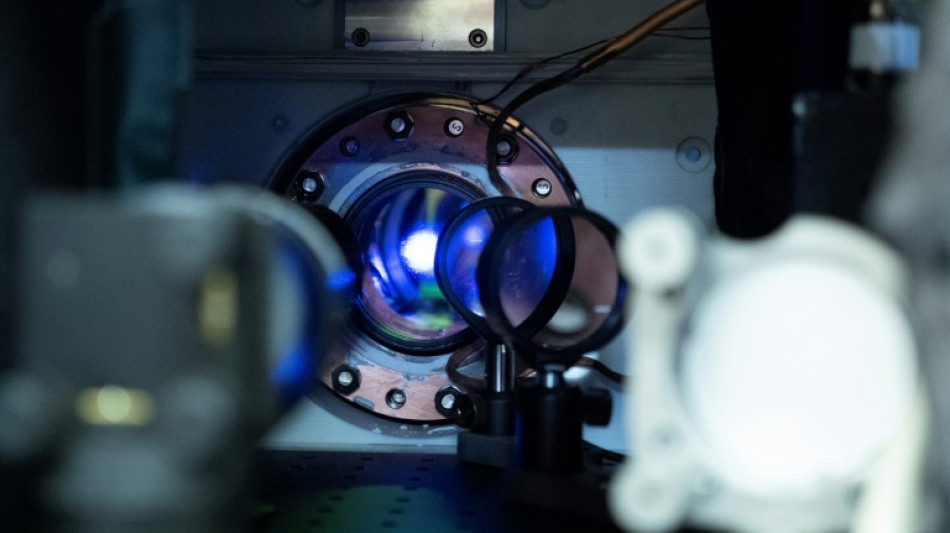
-
 Liverpool-Man Utd Premier League clash to go ahead despite snowfall
Liverpool-Man Utd Premier League clash to go ahead despite snowfall
-
Bezos's Blue Origin poised for first orbital launch next week
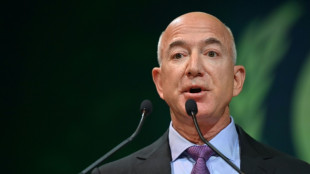
-
 Hollywood A-listers set to shine at Golden Globes
Hollywood A-listers set to shine at Golden Globes
-
Messi misses Presidential Medal ceremony with Biden

-
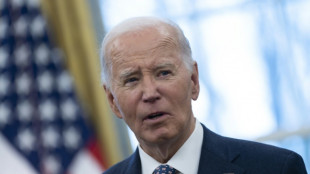 Bono, Messi, Soros awarded Presidential Medal of Freedom by Biden
Bono, Messi, Soros awarded Presidential Medal of Freedom by Biden
-
World's oldest person dies at 116 in Japan

-
 Syria says international flights to and from Damascus to resume Tuesday
Syria says international flights to and from Damascus to resume Tuesday
-
Bono, Messi, Soros get Presidential Medal of Freedom from Biden
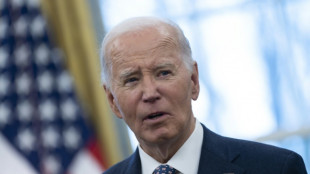
-
 South Korea says fatal crash cockpit transcript nearly complete
South Korea says fatal crash cockpit transcript nearly complete
-
EV sales hit record in UK but still behind target

-
 AI expected to star at CES gadget extravaganza
AI expected to star at CES gadget extravaganza
-
Brazil says 2024 was its hottest year on record

-
 Soldier in Vegas Tesla blast suffered PTSD, no 'terror' link: FBI
Soldier in Vegas Tesla blast suffered PTSD, no 'terror' link: FBI
-
Microsoft expects to spend $80 bn on AI this fiscal year

-
 Man arrested for supplying drugs to Liam Payne: Argentine police
Man arrested for supplying drugs to Liam Payne: Argentine police
-
Breeding success: London zoo counts its animals one-by-one
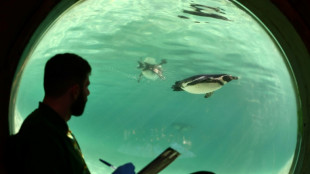
-
 Biden blocks US Steel sale to Japan's Nippon Steel
Biden blocks US Steel sale to Japan's Nippon Steel
-
Wall Street stocks bounce higher, Europe retreats

-
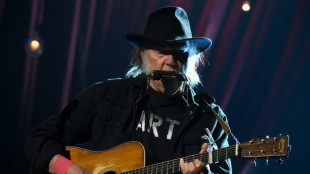 Neil Young says he will play Glastonbury after all
Neil Young says he will play Glastonbury after all
-
Biden blocks US-Japan steel deal

-
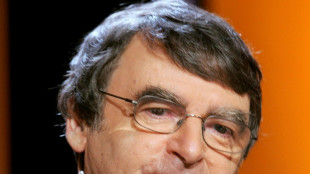 British novelist David Lodge dies aged 89
British novelist David Lodge dies aged 89
-
Indonesia says 2024 was hottest year on record

-
 Indian duo self-immolate in Bhopal waste protest
Indian duo self-immolate in Bhopal waste protest
-
Indian food delivery app rolls out ambulance service

-
 European stock markets retreat after positive start to year
European stock markets retreat after positive start to year
-
UK electricity cleanest on record in 2024: study

-
 Biden to block US-Japan steel deal: US media
Biden to block US-Japan steel deal: US media
-
Thai PM declares millions in watches and bags among $400 mn assets

-
 China says 'determined' to open up to world in 2025
China says 'determined' to open up to world in 2025
-
Asian shares rise defying slow Wall Street start to 2025

-
 'Emilia Perez' heads into Golden Globes as strong favorite
'Emilia Perez' heads into Golden Globes as strong favorite
-
'You need to be happy': graffiti encourages Cuban self-reflection

-
 Disaster-hit Chilean park sows seeds of fire resistance
Disaster-hit Chilean park sows seeds of fire resistance
-
Mixed day for global stocks as dollar pushes higher

-
 Nick Clegg leaves Meta global policy team
Nick Clegg leaves Meta global policy team
-
Tesla reports lower 2024 auto deliveries, missing forecast

-
 Meghan Markle's lifestyle show to premiere Jan 15 on Netflix
Meghan Markle's lifestyle show to premiere Jan 15 on Netflix
-
Wall Street lifts spirits after Asia starts year in red

-
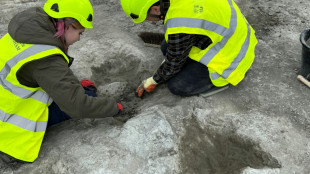 UK's biggest dinosaur footprint site uncovered
UK's biggest dinosaur footprint site uncovered
-
Most UK doctors suffer from 'compassion fatigue': poll

-
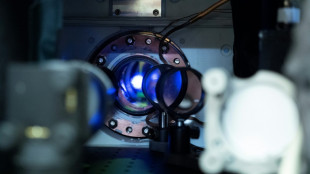 Secret lab developing UK's first quantum clock: defence ministry
Secret lab developing UK's first quantum clock: defence ministry
-
US mulls new restrictions on Chinese drones

-
 Wall Street dons early green after Asia starts year in red
Wall Street dons early green after Asia starts year in red
-
Stock markets begin new year with losses

-
 Sales surge in 2024 for Chinese EV giant BYD
Sales surge in 2024 for Chinese EV giant BYD
-
Asian stocks begin year on cautious note

-
 Blooming hard: Taiwan's persimmon growers struggle
Blooming hard: Taiwan's persimmon growers struggle
-
Asia stocks begin year on cautious note

-
 Cosmetic surgery aficionado Jocelyne Wildenstein dies aged 79: partner
Cosmetic surgery aficionado Jocelyne Wildenstein dies aged 79: partner
-
Power restored to most of Puerto Rico: utility


Secret lab developing UK's first quantum clock: defence ministry
A top-secret lab in the UK is developing the country's first quantum clock to help the British military boost intelligence and reconnaissance operations, the defence ministry said Thursday.
The clock is so precise that it will lose less than one second over billions of years, "allowing scientists to measure time at an unprecedented scale," the ministry said in a statement.
"The trialling of this emerging, groundbreaking technology could not only strengthen our operational capability, but also drive progress in industry, bolster our science sector and support high-skilled jobs," Minister for Defence Procurement Maria Eagle said.
The groundbreaking technology by the Defence Science and Technology Laboratory will reduce reliance on GPS technology, which "can be disrupted and blocked by adversaries," the ministry added.
It is not a world first, as the University of Colorado at Boulder developed a quantum clock 15 years ago with the US National Institute of Standards and Technology.
But it is "the first device of its kind to be built in the UK," the statement said, adding it could be deployed by the military "in the next five years".
A quantum clock uses quantum mechanics -- the physics of matter and energy at the atomic and subatomic scale -- to keep time with unprecedented accuracy by measuring energy fluctuations within atoms.
Accurate timekeeping is crucial for satellite navigation systems, mobile telephones and digital TV, among other applications, and may open new frontiers in research fields such as quantum science.
Companies and governments around the world are keen to cash in on the huge potential benefits quantum technology could bring.
Google last month unveiled a new quantum computing chip it said could do in minutes what it would take leading supercomputers 10 septillion years to complete.
The United States and China are investing heavily in quantum research, and the US administration has imposed tight restrictions on exporting such sensitive technology.
One expert, Olivier Ezratty, told AFP in October that private and public investment in such technology had reached $20 billion during the past five years.
The defence ministry said future research would "see the technology decrease in size to allow mass manufacturing and miniaturisation, unlocking a wide range of applications, such as use by military vehicles and aircraft".
H.Cho--CPN
